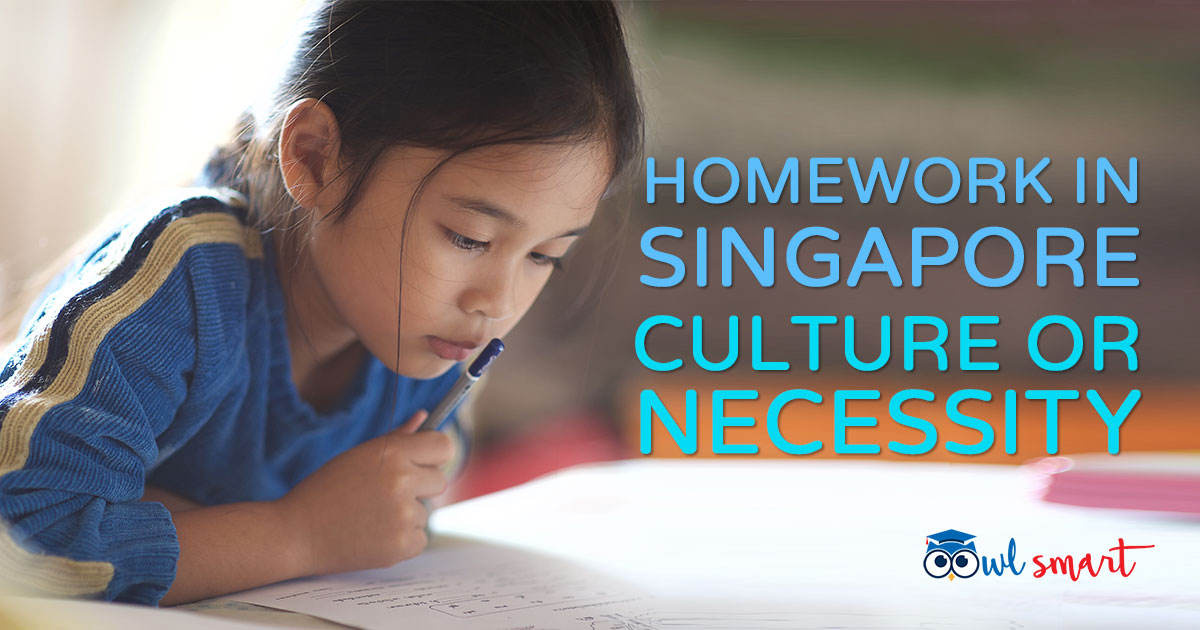
Homework – A Common Conversational Starter
“Did the teacher give any homework today?”
“Take out your Student Handbook and check if there is any homework.”
“Got e-learning assignment for this weekend?”
Homework is easily one of the most common topics in daily conversations between parents and their children in primary school nowadays. Ironically, more often than not, the above questions come before questions such as “How’s your day?” or “What did you have for recess this morning?”
The School Homework Policy
There is actually a set of guidelines governing the topic of homework in all schools on our lovely little red dot. It is named the School Homework Policy. It defines homework as “any learning activity” that each school requires their students to complete after school hours. The rationale for homework serves to allow educators to address learning gaps, if any, among the students in their respective subject classes. At the same time, it enables parents to gain a more accurate picture of their children’s learning progress.
What do Teachers and Parents feel about Homework?
Nonetheless, there seem to be a growing divergence in the mindsets of both educators and parents towards the concept of homework. One of the key reasons educators give homework is actually to show parents what is being covered in school. This is often communicated through instructions posted on different mediums such as the common student handbook and mobile apps like ClassDojo. In fact, ClassDojo is fast gaining popularity as the app where parents access daily to check what homework there is and to communicate with teachers any concerns they might have.
At the same time, there are increasingly more parents who feel homework takes away time from their children for leisure activities such as sports or even running about with their friends in the safety of their neighbourhood. On a more serious note, there also appear to be parents who seem to be overly involved in their children’s homework. You can probably identify them by the way they try to get their children to follow instructional techniques that differ greatly from what their teachers had used or the manner in which they give a fixed duration for their children to complete all their homework.
Is Homework Beneficial?
In Singapore, the general guideline for time spent on homework is about 30 minutes to an hour for Primary 1-2 students, 1-1.5 hour for Primary 3 and 4 students and 1.5-2 hours for Primary 5 and 6 students. Nevertheless, each school will tell you that it varies from student to student and that the above applies to the average student. So, the key question is What is an average student?
There is clearly no definitive answer to the above question. Numerous educational studies have established a positive correlation between homework and academic achievement. Hence, there appears to be proven value in the completion of homework. Nonetheless, many experienced teachers will share with you that on many an occasion, they will find, to their disbelief, that some students who steadfastly complete their homework, actually lag behind some peers who may be late or forget to complete their homework.
Final Thoughts
In conclusion, educators should take into account the unique needs and circumstances of their students and families with regards to homework.
E.g. 1 - A teacher gives an extra day to a particular student for homework submission as the child is required by his parents to help out at their food stall till evening.
E.g. 2 – A student who is still mastering the foundational concepts of a topic is instructed to complete only the knowledge and comprehension-based questions rather than the application-based questions.
About the Author
Teacher Chin has more than a decade of experience in teaching English from Primary Two to Primary Six in local primary schools. He is presently, in his free time, having immense enjoyment experimenting with the Nimzo-Indian Defence in chess and trying out the Apacs Lethal 9 in badminton doubles.



